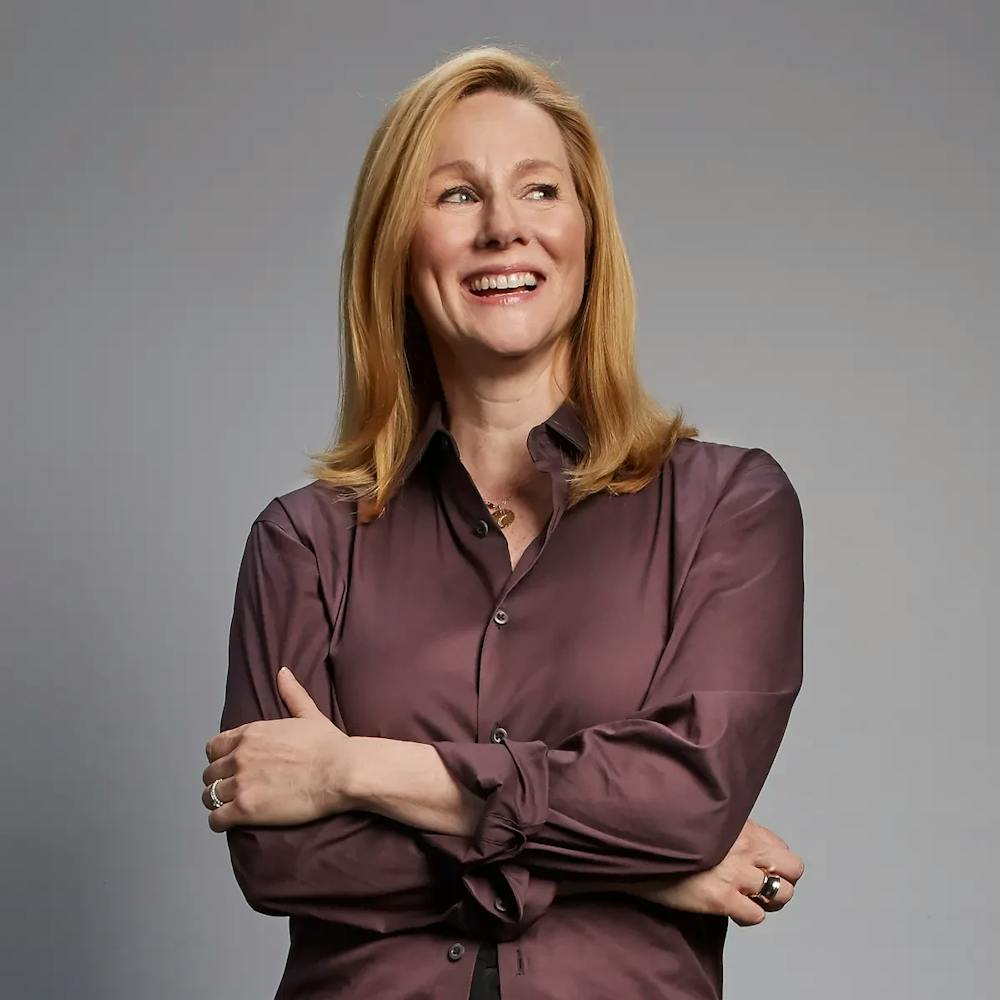Laura Linney has won nine Emmys, two Golden Globes, and one Screen Actors Guild Award. More recently, she gave the 2023 Flinn Foundation Centennial Lecture. The Flinn Foundation established an endowment in 1985 to celebrate the university’s 100th year.
In 1989, the foundation provided Barrett, The Honors College with the resources to bring guest lecturers to educate their students. Thus, the tradition of the Centennial Lecture began. Held in the Carson Ballroom at Old Main at Arizona State University, Linney spoke to Barrett students, fans, and VIP guests about incorporating creativity into every aspect of one’s life.
Linney has starred in numerous works of film, television, and theater. She was featured on The Truman Show (1998) and Love Actually (2003), and she played Wendy Byrde on the Netflix drama series Ozark (2017-2022). She was nominated for five Tony awards for her role in Arthur Miller’s The Crucible in 2002.
Linney spoke about the importance of the arts, more specifically the performing arts, in helping people live full and rich lives. She acknowledged the ongoing SAG-AFTRA writers strike, but instead focused on her work on stage.
Linney said her passion for the arts came from “something within her” – her father was a playwright, so she grew up surrounded by the performing arts. Her literary skills, however, were not as developed. She found reading difficult, and only grasped the concept in fifth grade. She was ashamed of her inability to read. Linney’s struggles with reading further reinforced her love for acting. She took her struggle with more traditional skills and used that frustration to fuel her pursuit of the arts.
Growing up in New York City, Linney was living in an art paradise. Joseph Cornell’s shadow boxes were particularly influential to her ability to absorb and comprehend art, having seen his work in the Museum of Modern Art. The art was hung at a height perfect for children to peer in, so she used this concept, and was inspired to communicate her ideas. This experience taught Linney to think about the art of the story in a three-dimensional way.
Her experiences with the arts shaped her formative years, taught her communication skills, and formed her critical thinking. Linney referenced Barrett’s Human Event class, which establishes a liberal-arts style understanding of the human experience in every honors student. She was thoroughly impressed by this pursuit, and emphasized that the search for knowledge is always beneficial. When emphasizing the importance of a liberal arts education, she said one’s “deep sense of curiosity keeps [them] a student.”
Linney said acting is both a vocation and a profession. Linney is a celebrity but has made intentional choices to keep her personal life private. She said acting is about contributing to something bigger than her and that theater improves societal morale.
She challenged her listeners to embrace discomfort. She shared an anecdote about her mentor, Joanne Woodward. In her early years as an actress, she called Woodward for advice about a play she was in that seemed destined for failure. Woodward told Linney not to attempt to save a disastrous play, but to learn from it. Linney used this heartwarming story to highlight “the importance of a first draft.” Woodward said a life without failure is a life without meaning. The journey of life is learning to fail, and continuously relearning to fail.
Linney encouraged the audience to ask themselves a very simple question: Why? She then explained that when she is lost or struggling with something, she asks herself, “Why am I feeling this way?” and then continues to ask herself this until she arrives at what she called a “pure place.” She detailed that this place is the root of any struggle, idea, or belief.

